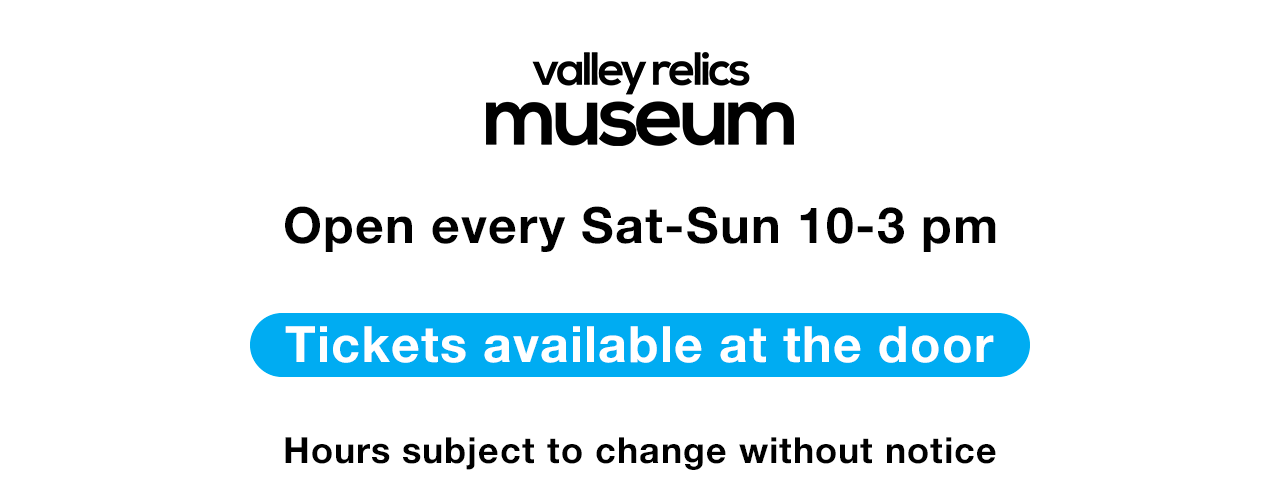Sixty years ago this month, on February 3, 1959, was the tragic plane crash that took the lives of three early rock and roll icons: Buddy Holly, J. P. “The Big Bopper” Richardson, and Ritchie Valens. Valens was only 17 and had risen to rock stardom just eight months before. He is remembered as a pioneer of Chicano and Latin rock, and holds a special place in San Fernando Valley history.
Ritchie Valens (Richard Valenzuela) was born and raised in Pacoima, and attended Pacoima Junior High and San Fernando High School. His parents, Joseph Valenzuela and Concepcion “Connie” Reyes, were Mexican immigrants. Valens combined a Veracruz folk song, “La Bamba,” with a rock and roll beat to create the first Spanish-language hit rock song. If you catch “La Bamba” on the radio today, however, or even search for it on Youtube, you’re most likely hearing the 1987 cover version by L.A. rock band Los Lobos, who recorded it for a biopic of Ritchie Valens (also called La Bamba.) Ritchie’s actual 1958 recording is below.
I don’t have any groundbreaking research to add to the study of Ritchie Valens’ career, but when I was researching the Rainbow Roller Rink, a Van Nuys venue where he may have played, I came across this crazy anecdote:
[In the movie Diary of a High School Bride] Our singer was Tony Casanova, who was Ritchie Valens’ first cousin. He distinguished himself in rock history when he tried–out of jealousy–to run Ritchie over earlier with a truck at the Rainbow Roller Rink.
The above quote is from an interview with the late record producer and musician Kim Fowley. With all due respect to Fowley, I found some inaccuracies in the story. Tony Casanova was a classmate of Ritchie Valens’ at Pacoima Junior High, but they were not related. Casanova, whose real name was Jutilio Perez, was Puerto Rican, not Mexican-American. Interviewed later in life, Tony Casanova described a friendly relationship with Ritchie Valens, as well as astonishment that while he (Casanova) was knocking on doors trying to get auditions and a record contract, Ritchie was approached by producer Bob Keane without even trying, and then rocketed to fame.
But Casanova’s hard work paid off, and he did get signed, releasing three singles between 1958 and 1959. (He was 16 years old.) He appeared in one scene in Diary of a High School Bride, where he apparently met Kim Foley. Was he really murderously jealous of Ritchie Valens as a teen? If so, he wisely chose not to talk about it as an adult. Instead, he wanted to clear up a particular inaccuracy from the film La Bamba: “I was the one that drove him to Bob Keane’s house and took him down into the basement where he cut the first demos that got him his contract. In the film La Bamba they show his brother taking him there but it was NOT his brother, it was ME.” Certainly a better rock history footnote than attempted vehicular homicide!
Casanova/Perez and Valens/Valenzuela both changed their names to find “broader appeal”–i.e., to not scare off white Anglos. Bob Keane of Del-Fi Records said, “I knew that if we put a record out and called him Valenzuela, they wouldn’t even listen to it. They’d just throw it in the trashcan.” While Valens then turned around and put his heritage on display with “La Bamba,” Casanova switched to the even less Latin “Tony Ray” in the 1960s.
Here is the strongest (in my opinion) of Tony Casanova’s singles, “Showdown” (1958). Perhaps the fate he had in mind for Johnny Brown involved a truck?
https://www.youtube.com/watch?v=Syz5njFCLR0
And here is his film debut. The person who uploaded this clip called him an “Elvis wanna-be” a little unkindly. Come on–he’s only sixteen! Interestingly, he throws a little Spanish into his act.
Finally, I’ll finish this article up with a short montage of Ritchie Valens, which was played at his posthumous induction into the Native American Music Awards Hall of Fame in 2009. The blurry color footage comes from home movies provided by the Valenzuela family, a very touching peek into a San Fernando Valley family in the 1950s.
–Alison Turtledove
Partial List of Sources
Finnis, Rob. Album liner notes for “The Doré Story, Volume 1: Postcards from Los Angeles, 1958-1964.” This is the source of the most biographical information on Tony Casanova that I have been able to find.
González, María R. “The First Latino Rockstar.” October 12, 2016.
Kubernik, Harvey. Hollywood Shack Job: Rock Music in Film and on Your Screen. Albuquerque: University of New Mexico Press, 2006.
“The Legends: Ritchie Valens.” PBS SoCal, October 19, 2009.
